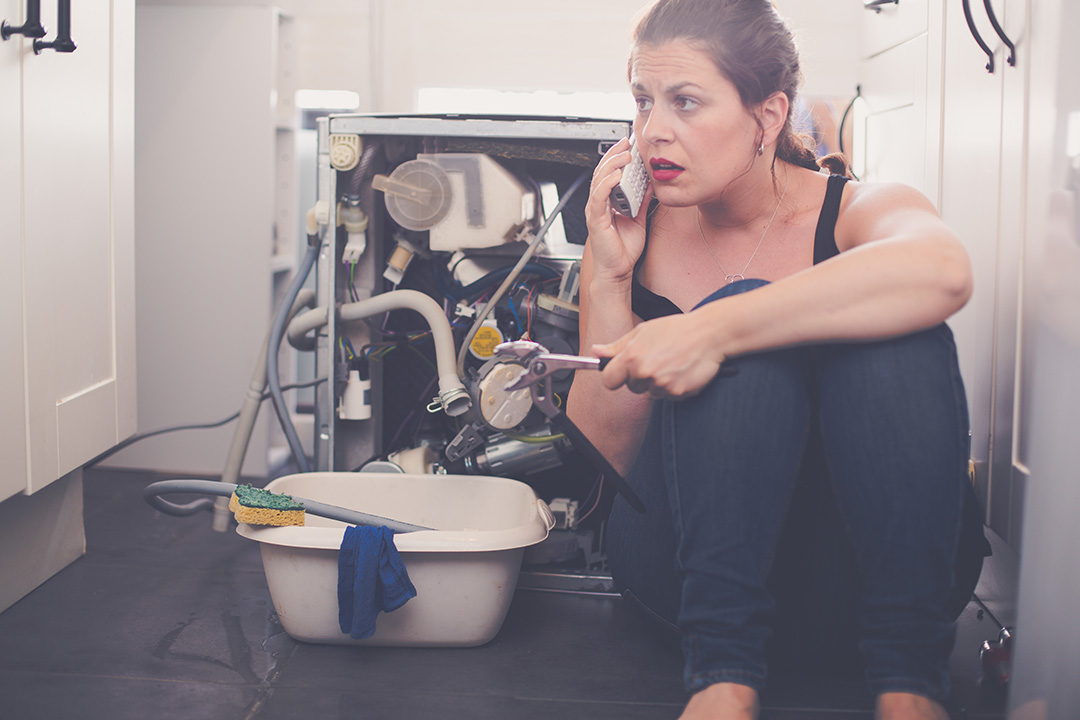Clean, running water is a modern convenience that many of us take for granted. It’s there when we need to bathe, brush our teeth, wash our clothes and dishes, cook, or quench our thirst. Having access to running water is dependent on a home’s plumbing. And for most homeowners, plumbing is the least of their worries—until disaster strikes, that is.
Plumbing problems and emergencies can range from minor inconveniences to potentially dangerous situations that can put you, your loved ones, your pets, and even your home itself in danger. It’s important to know how to both handle emergencies on your own and when to enlist the help of a team of professionals.
At Aqueduct Plumbing Company, we recommend that homeowners take the following four steps if they ever encounter a plumbing emergency:
1. Turn off your home’s main water valve. Knowing where your home’s water shut-off valve is located and how to operate it are two of the most important tasks you can undertake as a homeowner. Even if you don’t feel comfortable attempting any other emergency plumbing solutions, simply shutting off all water supply to your home during an emergency can save your health and prevent catastrophic damage.
2. Use duct tape or pipe sealing tape to temporarily seal cracks. If you notice a crack or leak in an exposed pipe but can’t shut off your home’s water or the water to that particular faucet or appliance, duct tape or pipe sealing tape can be used to temporarily fix the problem. However, don’t rely on it for long. Make an appointment with an experienced plumbing company right away to replace the damage section of pipe.
3. Use towels, rags, and heavy-duty paper towels to soak up leaks or minor floods. Water can be extremely damaging to every aspect of your home. It can lead to mold growth, ruined carpet, and weakened floors and drywall. If your home ever experiences minor flooding, don’t hesitate to use anything capable of soaking up excess water, including beach and bath towels, rags and cloths, spare clothing, and paper towels. A Wet-Dry vacuum can also help eliminate standing water.
4. Take pictures and notes of what happened. It’s important for both insurance purposes and professional plumbing purposes to have detailed information concerning the status of your home after a plumbing emergency. Use your camera or smartphone to document the damage and any flooding, and write down what you think caused it to happen and any steps you’ve taken to prevent the situation from getting worse.
Plumbing is complicated, and even routine fixes often need the touch of a professional. And when it comes to emergencies, having the expertise of a top plumbing company is essential. Contact us today to request a plumbing quote, or schedule a plumbing appointment.


